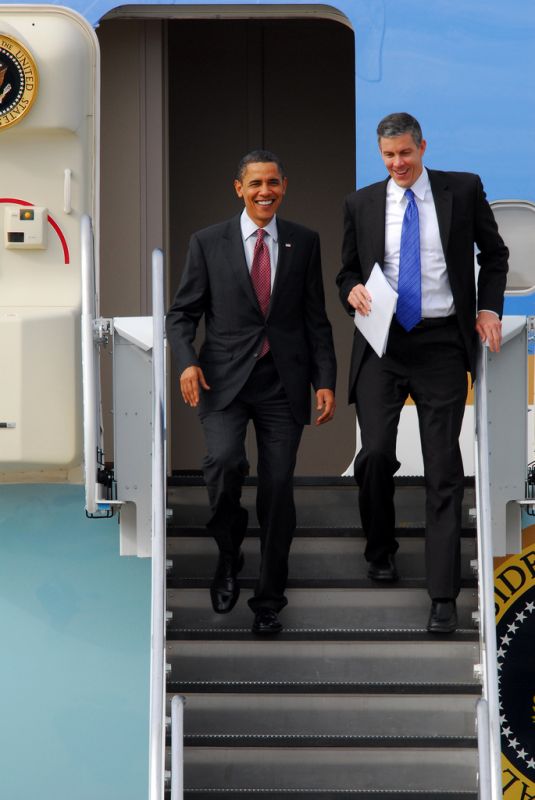
Flickr/ <a href="http://www.flickr.com/photos/wwworks/4005631298/">WoodleyWonderWorks</a> (Creative Commons)
Secretary of Education Arne Duncan awarded Tennessee $500 million in the first round of President Obama’s $4 billion Race to the Top competition, yet the volunteer state’s academic standards were given an failing grade of “F” in a new study by Harvard University researchers. Study authors Paul E. Peterson and Carlos Xabel Lastra-Anadón assessed states’ education standards by comparing 4th- and 8th-grade students’ performance on the 2009 National Assessment of Educational Progress—a standardized test considered the gold standard in testing efficacy—with their performance on the standardized tests administered by each state individually, tests whose levels of difficulty vary considerably.
Peterson and Lastra-Anadón found that 90 percent of Tennessee’s 4th-graders demonstrated proficiency in math on the state’s own assessment, while only 28 percent achieved at that same level on the national exam, a result that indicates Tennessee’s state education standards have been watered down. “With such divergence, the concept of ‘standard’ has lost all meaning,” the researchers concluded. “It’s as if a yardstick can be 36 inches long in most of the world, but 3 inches long in Tennessee.”
Delaware, the only other Race to the Top winner, received a grade of “C minus” for the disparity between its students’ scores on NAEP and their performance on Delaware’s state standardized test. Five states—Hawaii, Massachusetts, Missouri, New Mexico and Washington—earned grades of “A” in the study, while Alabama and Nebraska joined Tennessee in the group of states who received grades of “F.”
Duncan chose Tennessee and Delaware as winners from among 16 finalists for Race to the Top, a competition that encourages states to fight for federal education funds by pledging to institute school reforms favored by Duncan, like expanding charter schools or evaluating teachers based on students’ gains on standardized tests. The results of this study, and another recently released report, raise concerns about what Duncan is rewarding with the $4 billion carrot he’s been dangling in front of budget-crunched states. At the very least, the Harvard report adds to the debate over whether Duncan is promoting true education excellence and whether his approach will work for the nation’s students. “Curricula can be perfectly designed,” Peterson and Lastra-Anadón write, “but if the proficiency bar is set very low, little is accomplished by setting the content standards in the first place.”







